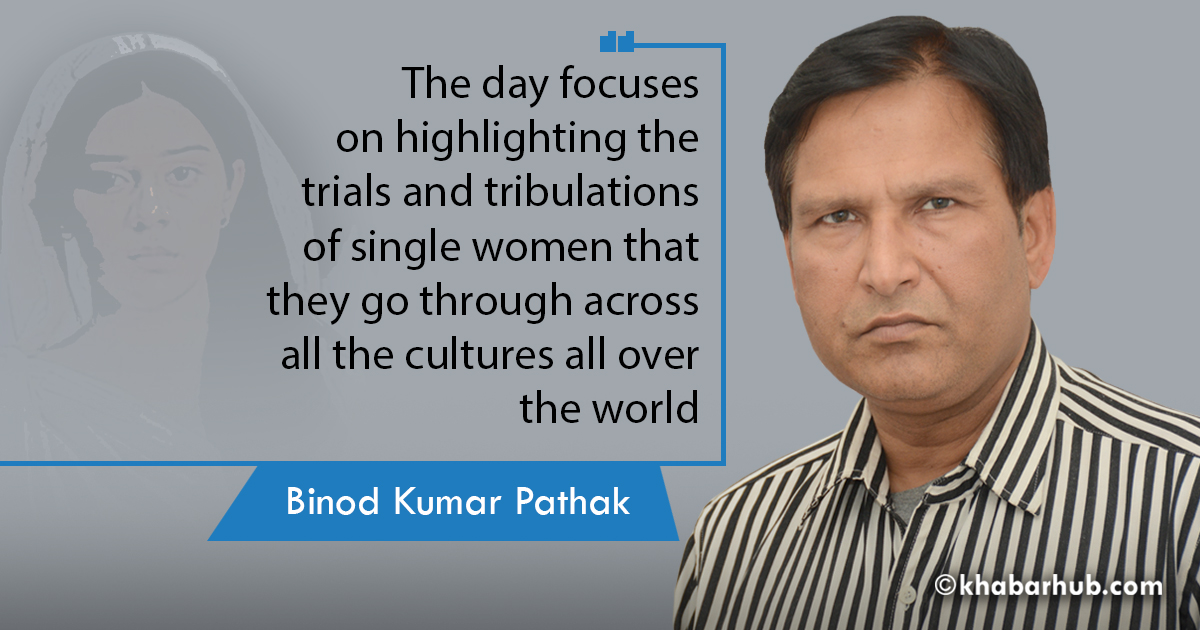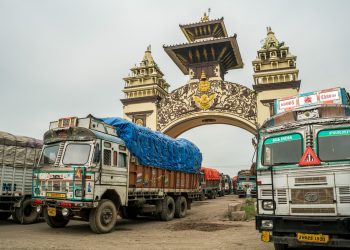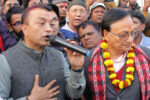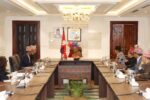June 23 is celebrated as International Widows’ Day. Not many of us know about it as we are not aware of the plight of single women living around us. We hardly care what they go through in their life both physically and psychologically when they look for protection and support from their family, community, and the government. International Widows’ Day was first observed in 2005, and five years later the United Nations (UN) recognized it officially in December 2010 by going ahead with the first official celebration in 2011.
The day focuses on highlighting the trials and tribulations of single women that they go through across all the cultures all over the world. A heart touching story goes behind how the issue of widowhood came to be recognized throughout the world. Rajinder Paul Loomba was born as one of seven children in Dhilwan (Punjab, India). His family moved to England in 1962 and he made his fortunes in business there. He became world famous when he began to raise fund for launching an international campaign drumming the plight of single women in developing countries in memory of his mother.
On this very day, all UN Member States including the UN system and other international, national and local organizations are encouraged to organize events and activities to raise awareness about the plight of single women – the women who lost their husband and are undergoing the pangs of poverty and social injustice.
His mother, Shrimati Pushpawati Loomba was widowed at the age of 37 and raised seven children on her own. In his mother’s memory, Raj Loomba set up his charity ‘The Loomba Foundation’ to commemorate the day in 1954 when his mother became a widow. The foundation works to raise awareness of the issue of widowhood and also raises funds to empower the single women along with educating their children especially the poor ones. The Loomba Foundation is more active in developing countries around the world particularly in South Asia and across Africa. It is all because of the sustained campaign of this foundation UN General Assembly finally recognized with unanimous voice 23 June as International Widows Day.
By doing this the UN sought all its member nation-states to address the poverty and injustice faced by millions of widows and their dependents in many countries. On this very day, all UN Member States including the UN system and other international, national and local organizations are encouraged to organize events and activities to raise awareness about the plight of single women – the women who lost their husband and are undergoing the pangs of poverty and social injustice.
They are prohibited from mixing with others and also evicted from their homes. They are physically abused and emotionally traumatized, some even killed by their family members.
There are millions of single women (not less than 300 million by a conservative estimate) around the world and at least 200 million of them live in poverty. At the same time, they suffer from social stigmatization because they have lost their husbands. Their economic deprivation gets acute as they are left neglected. No efforts of imparting new skills and training to become entrepreneurs on their own are given to them. They are forgotten sufferers and theirs is a story of an invisible calamity. Why widows are invisible women and their problems are invisible because data on women’s status are often not disaggregated by marital status.
Nearly one out of ten live in extreme poverty and no state apparatus bothers to reach them. At every level of gender statistics, from national to global, widows are invisible. Yet we see them all around us often ignoring their presence and overlooking their problems mostly forced upon them due to the social structure of patriarchy and customary sanctions. We know how they are treated in family, community and in society. They are denied inheritance and land rights. They are not invited to social and religious celebrations. They are prohibited from mixing with others and also evicted from their homes. They are physically abused and emotionally traumatized, some even killed by their family members. A woman’s social status and her individual dignity are inextricably linked to her husband’s. A woman is considered an object (- the other) as she is considered ‘other-half’ (half part of a man) and when her husband dies, she also dies by half only to be doomed for rest of her life. She has no control over her life, her existence is conditional dependent upon external agents such as men and happening of events involving men which she is never part of and responsible for. She is inessential, incomplete and mutilated…….He is essential, absolute and transcendental (Simon De Beauvoir: The Second Sex, 1949).
Having been ostracized, they are sent to live in secluded demarcated places called Widows Home (Bidhwa Ashram). As they have nobody to count on, they leave their home.
Sexual difference between men and women are biological and perfectly fine but sexism and gender discrimination are not. He extends out into the world to impose his will on it, whereas a woman is doomed to immanence or inwardness; he creates, acts, invents and she waits for him to save her (Beauvoir). Women fight for equality is one part of balancing the power dynamics in society they live in. Another part and that is most important one is about ‘woman identity’ independent of being attached to a man. She no longer wants to wait for a man to save her because she is competent to decide for herself and she is her own savior. She has seen for long how men exploit women by being a ‘savior’. That kind of saving is nothing but a ploy to colonize women. If that is not the case why widowers are allowed to live the way they want, even remarry whereas widows undergo harsh ritualistic regime and left like mutilated body and soul. Gender equality is a basic human right; women are entitled to live with dignity and in freedom, free from fear and discrimination…… (Sandra Cisneros: The House on Mango Street, 1984).
In some of the local cultures, widows are asked to marry one of their husband’s male relatives generally against their will in order to regain social status. For many widows, the loss of a husband is just the beginning of the first traumatic experience in a series of a long chain of lifetime ordeal. SIngle women are named and shamed for something they don’t have any control. They are cursed for having taken the life of their husbands. Widows of all age elderly, young and even children suffer the same fate. The children of widows suffer no less than their mother as they are left unattended devoid of proper education, healthy food and loving environment that too in their prime growing up age. Widowed mothers, if they stand up at all, support their families alone. Sometimes, they are forced to withdraw children from school and send them away for earning bread. Moreover, the daughters of widows may suffer multiple deprivations along with increasing chances of physical abuse.
The plight of widows has been beautifully captured under the lenses of a famous movie Water (directed by Deepa Mehta and produced by David Hamilton). Water is an Indo-Canadian film which was released in 2005 in Canada and 2007 in India. It portrays the plight of widows in South Asia. When asked what motivated her to make a movie on plight of Hindu widows only, Deepa Mehta replied, ‘I had heard about widows living in plain white saris with shaved heads in several ashrams in India. When I saw them in Varanasi, my heart sank.’ Her film Water was adjudged a best foreign language film Oscar nominee (Canada’s entry). The purpose of this movie was to bring attitudinal change in the society of South Asia and improve the quality of life of all widows living forlorn life anywhere in the world. Brindaban has earned the sobriquet ‘City of Widows’ because of the heavy presence of widows from all across the country.
Having been ostracized, they are sent to live in secluded demarcated places called Widows Home (Bidhwa Ashram). As they have nobody to count on, they leave their home. They are spotted roaming around the towns and cities of Brindaban and Kashi (in India) in agony and frustration. Upon the request of public-spirited organizations, the Supreme Court of India directed the Union Ministry of Women and Child Development in 2012 to collect all the data regarding the status of widows across the country with a view to providing shelter and other amenities of life to them. A detailed ‘Action Plan’ has already been submitted before the court. Vigorous counseling is on with their family members so that wandering widows are taken from the streets of cities of Varanasi and Brindaban to send them back home. Several reform movements within the Hindu community were launched to uproot the obsolete and oppressive customs of Hindu religion from within. Sati Pratha has been rooted out but Bidhwa Pratha with all its ritualistic paraphernalia is still alive to the detriment of the wellbeing of Hindu women. Even laws of the land have not succeeded to end the archaic Hindu customs as latter is more powerful than the former. Let us hope work of the legends like Raja Ram Mohan Roy, Ishwar Chandra Vidyasagar, Vivekananda and Mahatma Gandhi in areas of widow welfare will bear fruits. Mahatma Gandhi once said, “Nobody should be a stranger to love.” Then, why shouldn’t a single woman ? Allow them to have slices of life that they deserve just as any other human beings do.









Comment